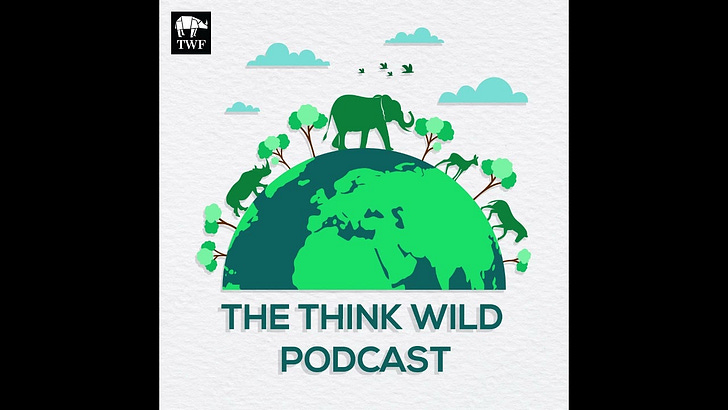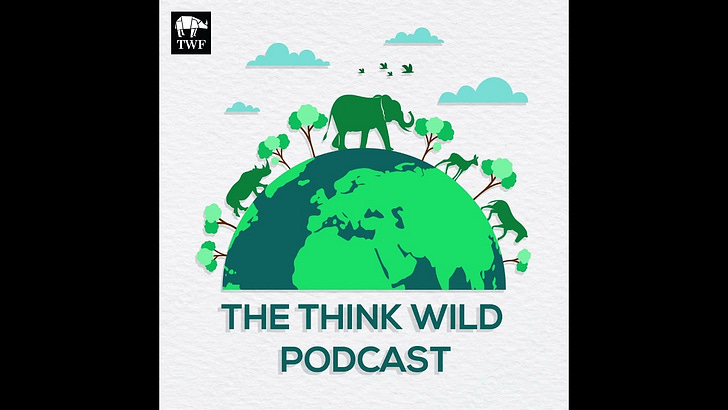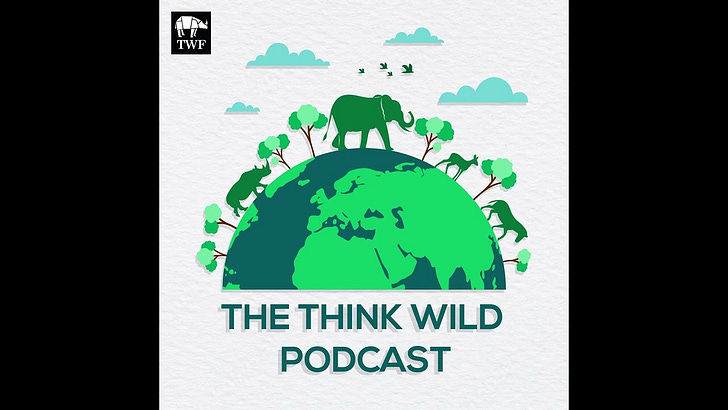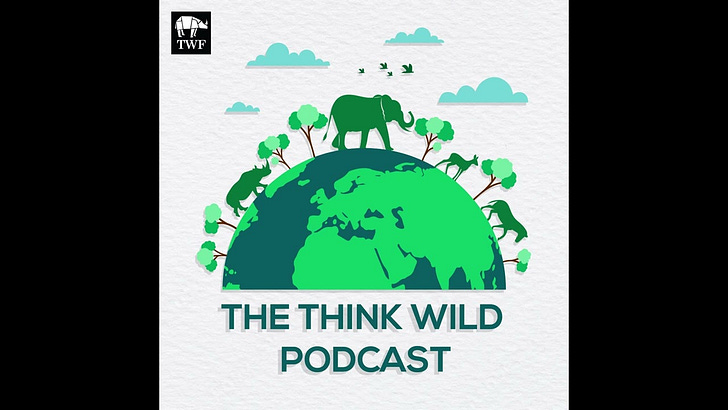How does animal behavior shape conservation outcomes? In this thought-provoking episode of the Think Wildlife Podcast, host Anish Banerjee speaks with Dr. Deyatima Ghosh, a postdoctoral researcher at ATREE, to explore the vital links between animal personality, cognition, and biodiversity conservation. With a particular focus on reptiles and amphibians in India’s agricultural landscapes, the conversation dives deep into how understanding animal behavior can inform ecological sustainability and conservation strategies.
Dr. Ghosh introduces the concept of animal personality—consistent and predictable behavioral differences within individuals—and explains how traits such as boldness, aggression, and exploratory behavior can shape species survival. These behavioral syndromes play a crucial role in shaping how animals adapt to environmental pressures and conservation interventions. She also discusses the cognitive processes that underlie behavior, including how animals perceive changes in their environment, process that information, and act upon it.
A key focus of the discussion is Dr. Ghosh’s groundbreaking research into the cognitive abilities of reptiles. Her studies show that reptiles can learn to identify and return to high-reward crop patches with greater pest infestations. This behavior significantly enhances biological pest regulation, making reptiles valuable allies in sustainable agriculture and reducing the need for harmful pesticides. Her findings challenge traditional views of reptiles as unintelligent and highlight their potential as ecosystem service providers.
The episode explores how generalist species consume a broad range of crop pests and are highly tolerant to environmental disturbance. Dr. Ghosh’s work demonstrates how predation modes—whether an animal actively forages or waits in ambush—can affect pest control efficiency. Active foragers, such as skinks and certain frogs, consume more pests and cover larger territories, while ambush predators like garden lizards and paddy frogs rely on prey mobility. Understanding these predation strategies can help tailor pest control efforts based on the life stages of agricultural pests.
Dr. Ghosh also discusses the effects of agricultural intensification on amphibian and reptile populations. Fieldwork in Balasore, Odisha revealed that high-intensity farming reduced amphibian abundance by half compared to low-intensity areas. More importantly, her research uncovered that when amphibian densities fall below a certain threshold, these animals may stop providing ecosystem services and instead begin preying on beneficial insect predators, resulting in ecosystem disservices.
This episode highlights the importance of maintaining healthy amphibian and reptile populations for effective pest management. Conservation strategies must ensure that these animals are supported through landscape-level planning, such as planting hedgerows, maintaining vegetation corridors, and conserving natural habitat patches. These features enable reptiles and amphibians to disperse, feed, and return to crop fields, enhancing their ecological role.
The podcast also touches on the role of agricultural landscapes as reservoirs of biodiversity. Dr. Ghosh explains how land-use patterns at various spatial scales—from local (125–250 meters) to landscape levels (500–1,000 meters)—differentially affect amphibian and reptile abundance. For instance, pesticide input impacts amphibians at the local scale, while natural vegetation and habitat heterogeneity at larger scales significantly support species richness. These insights underscore the need for multi-scalar conservation approaches tailored to species-specific ecological needs.
In a reflective closing, Dr. Ghosh shares her personal journey, including the challenges of conducting long-term fieldwork in rural Odisha and overcoming gender-based barriers. Her perseverance ultimately led to community transformation, as initially skeptical villagers became active participants in monitoring biodiversity. This human dimension adds depth to the scientific insights shared throughout the episode.
Whether you're a conservation biologist, ecologist, policymaker, or simply passionate about wildlife, this episode offers valuable insights into how animal cognition and behavior can be integrated into conservation science and sustainable agricultural practices.
Keywords: animal behavior and conservation, reptile cognition, amphibian ecology, biological pest regulation, herpetofauna in agriculture, biodiversity in agroecosystems, sustainable pest management, landscape-level conservation, animal personality research, ecosystem services of reptiles and amphibians, ecological intensification, behavioral ecology, biodiversity in India
Don’t forget to subscribe for more expert conversations on ecology, conservation biology, and wildlife science.
Listen to the full episode to understand how cognition and boldness affect species survival, why reptiles deserve a bigger role in agriculture, and what it takes to align local community support with conservation science.
For more information, visit our website or follow us on social media:
Website: https://thinkwildlifefoundation.com/
Twitter: @ThinkWildlifeFn
Instagram: @ThinkWildlifeFoundation
#AnimalBehavior #ReptileCognition #ConservationBiology #Herpetofauna #BiodiversityConservation #Agroecology #SustainableFarming #WildlifePodcast #BehavioralEcology #PestManagement #AmphibianEcology #ReptileEcology #BiodiversityIndia #AgriculturalConservation #CommunityConservation
Let me know if you'd like a version tailored for podcast platforms like Spotify or Apple Podcasts.












Share this post